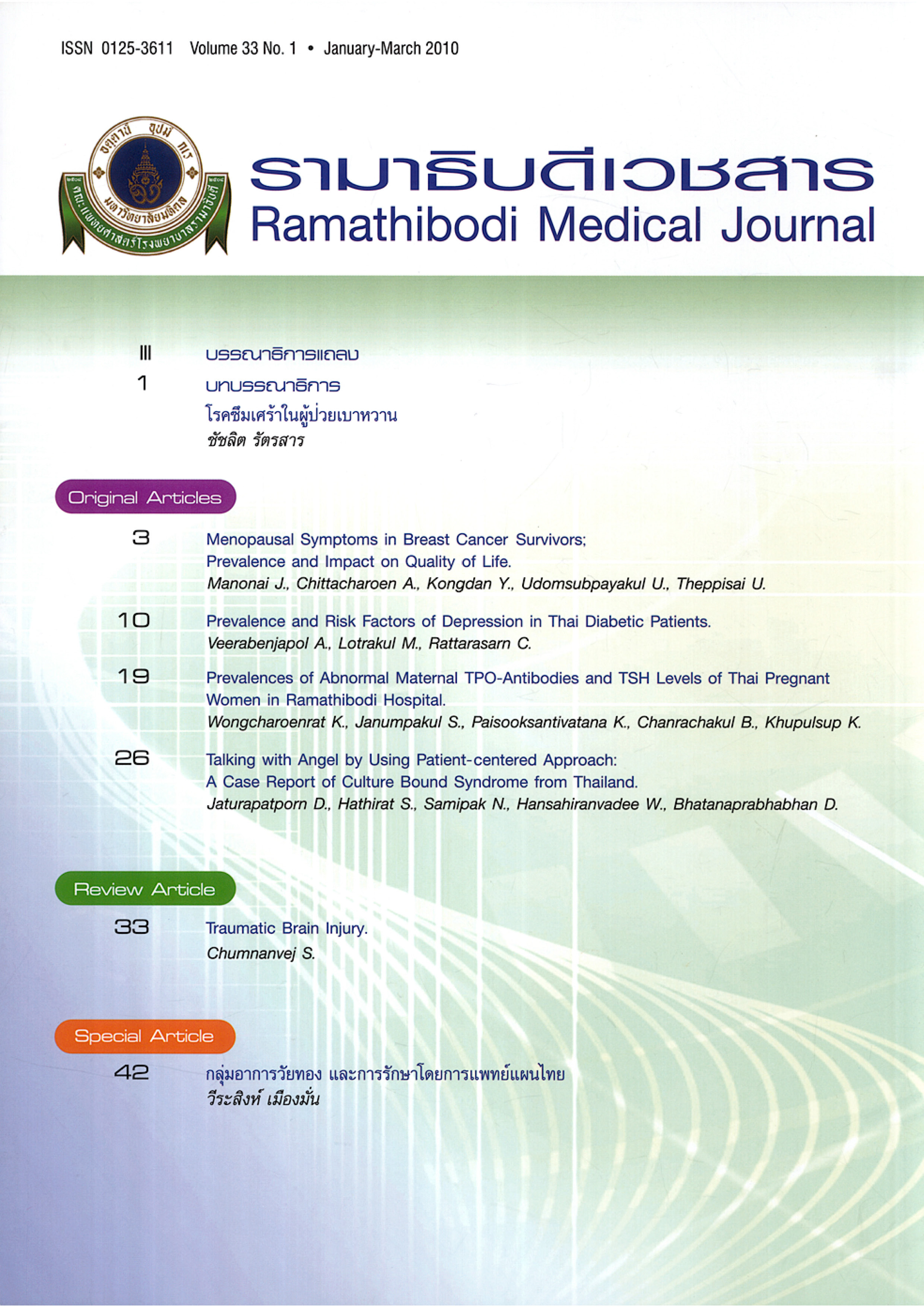Talking with Angel by Using Patient-Centered Approach: A Case Report of Culture Bound Syndrome from Thailand
Main Article Content
Abstract
Background: Despite the fact that culture’s role in health status is different across cultures and mental illness is not only biology-rooted. The previous edition of DSM-IV classification categorizes “Culture-bound syndrome” as a variant of brief psychotic disorder in non-industrialized countries. Now the DSM-IV recognizes it as a category of psychosocial distress. For many Thai people, “angel” is one of the main beliefs to support spiritual health.
Objective: To use patient-centered approach to detect the culture-bound syndrome in Thailand.
Method: A case report of a case interviewed by two medical students.
Results: A 49-year-old Thai female with non-adherence, poor-controlled DM was home-visited by 2 medical students to assess other health factors. During interviewing, she was found to have a bizarre sign of “little angel presentation” unconsciously while she was emotional. Two medical students tried using patient-centered interviewing with her and her “angel” alternately to understand her view on life. They found that the patient used displacement mechanism to control her own life after long term of family crisis. Since having a “little angel” with her, she feels her life getting much better.
Conclusion: Using patient-centered interviewing can increase detection and understanding of illness across cultures.
Article Details
References
Thakker J, Ward T. Culture and classification: the cross-cultural application of the DSM-IV. Clin Psychol Rev. 1998;18(5):501-29. doi:10.1016/S0272-7358(97)00107-4.
Parzen MD. Toward a culture-bound syndrome-based insanity defense? Cult Med Psychiatry. 2003;27(2):131-55.
Perez S, Junod A, Pilard M. Culture-bound syndromes: pertinence as a diagnostic category. Med Trop (Mars). 2000;60(1):75-82.
Kaplan HI, Sadock BJ. Synopsis of Psychiatry. 10th ed. Philadelphia, PA: Lippincott Williams and Wilkins; 2007:521-4.
Introduction to Culture-Bound Syndromes. [Cited 2010 Jan 3] https://hompage.mac.com/mccajor/cbs_frame.html.
Glossary of Culture-Bound Syndromes. [Cited 2010 Jan 3] https://hompage.mac.com/mccajor/cbs_frame.html.
American Psychiatric Association. Diagnostic and Statistical Manual of Mental Disorders, 4th ed. Washington, DC: American Psychiatric Association; 2000.
